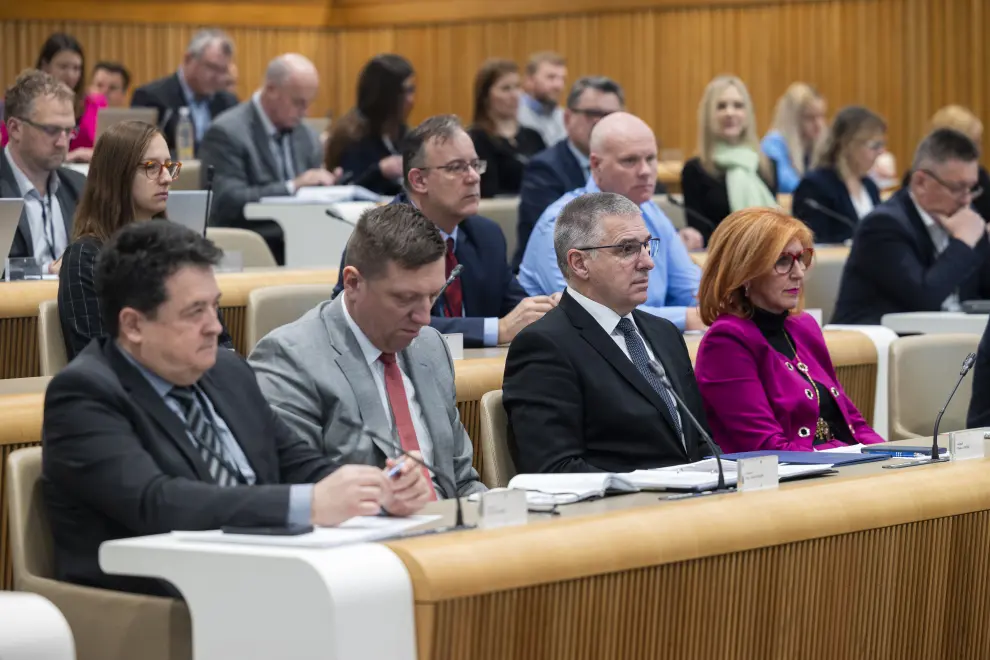Provinces seen as solution to traffic jams
Traffic congestions on Slovenian roads are becoming an increasingly burning issue. A debate hosted by the upper chamber of parliament and the Chamber of Commerce and Industry (GZS) on 22 January heard that tackling the issue should be a priority, offering decentralisation as a solution.
Marko Lotrič, president of the National Council, argued that the only way to achieve decentralisation as one of the solutions was through the creation of provinces.
"The introduction of provinces is our answer to the congestion on the roads leading to Ljubljana, to the burden on people and the environment, and a way to decarbonisation. Despite the fact that we all know they would be good in principle, the political will to introduce provinces is still not there," he said.
"We are faced with a traffic emergency on our roads, and in the middle of this chaos is the Ljubljana hub," said Vesna Nahtigal, GZS director general. She believes the expansion of road and rail capacity is the solution.
 A debate on traffic congestion hosted by the National Council and the Chamber of Commerce and Industry (GZS). Photo: Bor Slana/STA
A debate on traffic congestion hosted by the National Council and the Chamber of Commerce and Industry (GZS). Photo: Bor Slana/STA
Businesses have been calling for the speeding up of zoning procedures and the construction of third lanes on motorways, as a priority around Ljubljana and on all access roads to Štajerka, Primorska, Gorenjska and Dolenjska.
"We insist on the immediate, albeit temporary, use of right lanes for slow-moving vehicles, at least until one additional lane is built for public transport and multi-passenger vehicles, which would temporarily relieve the most congested part of the motorways," she said.
Mitja Gorenšček, GZS executive director and National Council member, called for a long-term vision of development of transport.
Infrastructure Ministry State Secretary Andrej Rajh said the state had been constantly investing in modernisation and maintenance of the transport network, but this is a "long-term and complex process". He also pointed to digitalisation as a way to use available infrastructure more efficiently.
Climate and Energy Ministry State Secretary Uroš Vajgl said the congestions were the result of unequal development of road and rail infrastructure in the past, not enough investments in the public transport and previous spatial policies.
In the absence of measures encouraging sustainable mobility, people have developed travelling habits that are not optimal, he said.


